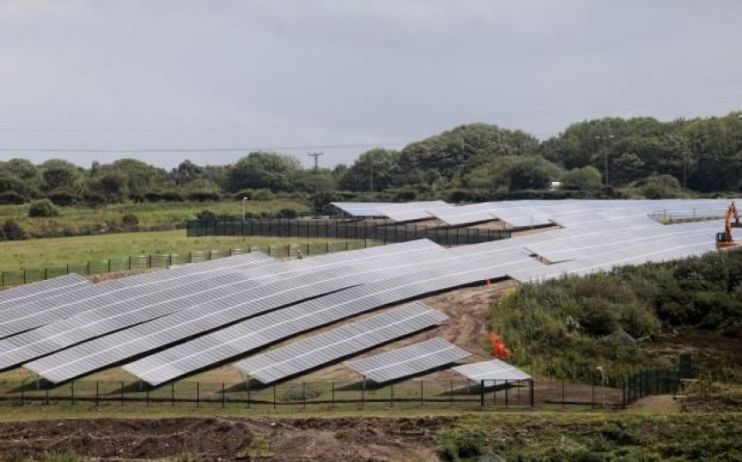Here comes the sun: Farming union welcomes Government solar U-turn

The leading farming body has backed the Government’s decision not to expand restrictions on farmland solar panels to moderate quality agricultural land.
Tom Bradshaw, deputy president of the National Farmers Union, told City A.M: “Renewable energy production is a core part of the NFU’s net zero plan and solar projects often offer a good diversification option for farmers.”
He also recognised the need to “strike a balance between food security and climate ambitions.”
He explained: “It is important that large scale solar farm development is located on lower quality agricultural land, avoiding the most productive and versatile soils. Utilising roofs and farm buildings for solar should also be incentivised as it delivers a sustainable method of energy production while avoiding any land use conflict.”
Bradshaw’s comments follow the latest U-turn from Downing Street, after Environment Secretary Therese Coffey confirmed panels on farmland will not face further restrictions.
She told a leading body of Westminster MPs yesterday that land judged to be moderate quality – capable of producing cereals and grass – could still be used for solar farms.
Speaking to the environment, food and rural affairs committee, Coffey said : “I’m not suggesting by default I want to put solar over every bit of 3b land. I think we do need to get that careful balance across that and make the best use of land.
This meant that planning restrictions would not be expanded to ‘3b’ agricultural land, which would have meant 60 per cent of the UK’s farms would have been ineligible for solar panels.
Farmland is graded from 1 to 5, with higher quality sites graded 1 to 3a recommended only for food production.
Renewable projects are typically only granted permission on land graded 3b to 5 – however, lower grade land poses problems for developments as the sites are often hilly and far away from towns and cities requiring extensive cabling for transmission.
This means 3b land has been highly attractive for newly proposed projects.
There were concerns within the industry that former environment secretary Ranil Jayawardena would impose restrictions on 3b land to boost food security.
In his leadership campaign this summer, Prime Minister Rishi Sunak backed rooftop solar over further farms on agricultural land.
“I’m more inclined about brownfield sites and certainly thinking through how farms and others can do a lot more self-energy production. I’m already conscious there are challenges about connecting to the grid.”
Coffey argued the Government ‘s review of land use – which would be published in the first half of next year – would take a “balanced” view.
Nevertheless, she recognised ramping up solar power was an essential target in the Government’s energy security strategy, with the UK targeting a five-fold increase by 2035.
She said: “But undoubtedly, you know, we have 14GW of solar now. Right now, the ambition within the energy security strategy is to raise it up to 70GW.”
Industry group Solar Energy UK described the outcome as a “victory for renewable energy,” arguing that solar panels could provide “farmers with a steady and reliable income, solar can promote food security by helping to keep them in business.”